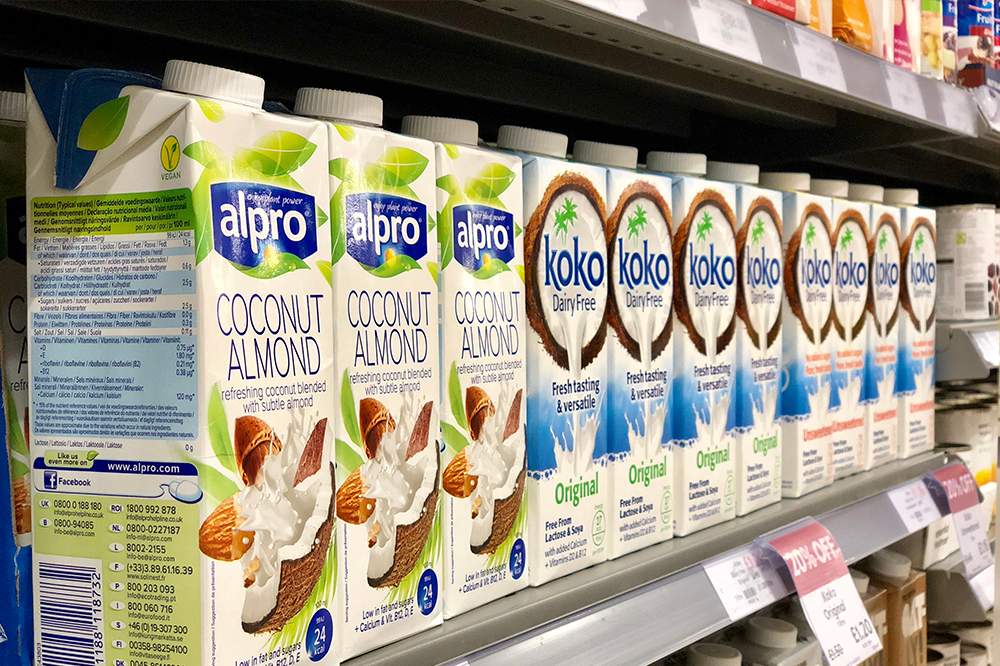The UK’s new post-2025 Plastics Pact will not just focus on single-use plastic packaging and will instead encompass targets for other materials like paper, aluminium, compostables and glass.
Wrap, the charity which led the inaugural Pact that runs to next year, says the aim of the new voluntary commitment for 2026-2030 is to: provide greater transparency and the ability to influence the UK’s packaging footprint; mitigate unintended consequences caused by material switching; and enable more holistic decision making.
Following the consultation on a new pact it is now “proposed that the scope of the new agreement covers all packaging materials and focuses on specific market failures that need to be addressed”, according to an update on the Wrap website.
The original agreement, published in 2018, involves leading food manufacturers and retailers committing to four plastic packaging targets that run to 2025. Foodservice companies haven’t been so keen to join.
There are 200 members now covering 75% of consumer plastic packaging. In an update blog this time last year Wrap CEO Harriet Lamb explained how the originally identified problematic plastic items have been pretty much designed out, while recycled content levels have tripled since 2018 (contributing to a 10.5% carbon reduction). Some 71% of plastic packaging is recyclable and “we’ve pretty much designed out hard-to-recycle plastics – ready meal aisles are no longer stacked with black plastic trays,” she explained.
This isn’t quite the case, with flexible plastics and films proving to be a particular problem. A recent investigation found plastic packaging like crisp packets and bread bags being returned to Sainsbury’s and Tesco stores by customers is not being recycled. There is also little chance of meeting the target of 30% recycled content across all signatories.
Wrap has been quick to blame delays to packaging regulations – including extended producer responsibility, deposit return schemes and simplified household collections – for the pact’s shortcomings.
However, it also appears keen to learn from the mistakes made in its new packaging pact. Three of the key flaws identified are: (1) The absence of a target to reduce plastic packaging; (2) The fact that target 2 is for packaging to be 100% reusable, recyclable or compostable, giving equal prominence to reuse and single-use (which companies have used as a get-out-of-reuse-free card, sticking instead to single-use); and (3), to focus only on single-use plastic: the wider packaging footprint of the UK has been “largely invisible”, noted Wrap’s explainer that accompanies the consultation.
Within the new update there is further acknowledgement of the unintended consequences of focusing on one single-use material, as well as the need to ensure a “just transition” to a fair and inclusive green economy.
Wrap has previously said there needs to be another post-2025 agreement because planned regulations, including whatever targets may come once the global plastics treaty is finalised later this year, won’t deliver “plastics circularity”.
This week, more than 80 drinks companies and representatives, including the C&C Group, Majestic Wine and the Wine and Spirit Trade Association wrote to Defra urging the department to delay the extended producer responsibility scheme for packaging (pEPR) again.
“There is insufficient clarity for a commercial organisation to set pricing strategies, including the extent to which they will pass new costs onto customers or adjust pricing or contracts with retailers,” they said. The group also said they could be exposed to “completely unfair” packaging fees.
EPR, due to come into force in January 2025, aims to make producers pay for packaging waste. There have been concerns about the fee structures being proposed by the government.





If plastics are not utilized for drinks and food, what alternatives do the environmental extremists suggest as the alternatives? Does society return to using energy intensive glass bottles for milk and other drinks? Or return to was coated paper milk containers realizing the wax coated paper is not recyclable and the wax needed comes from crude oil? Do the extremists want a return to using butcher paper to wrap meat and bread realizing paper offers not protection for spoilage? The environmental extremists offer alternatives that are less energy intensive than glass or paper or worse yet wax coated paper. The extremist approach is to tax use of plastic drink / food containers to pad their coffers for their specialist interest friends. The average citizen continues to pay higher and higher taxes with no benefits returned.